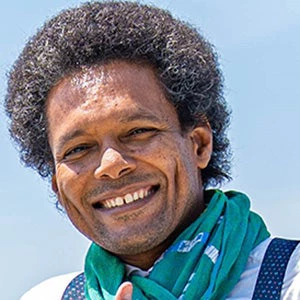Also available in: Français
As we saw in our first post, our six CEOs are very optimistic about incubators and their potential support to their countries’ economic development. You don’t get far in the private sector without being realistic, though, and they cautioned against seeing entrepreneurship as a catch-all remedy to West Africa’s youth unemployment and skills deficit issues.

“We need to look at our own context and develop our own model of entrepreneurship,” says Binta Ndiaye, MakeSense Africa CEO. “I see our universities doling out obsolete European-style business models and it’s just not suitable, learning and reproducing the same thing does nothing for innovation. I say, give young people the tools they need to undertake their own project and see where it takes them!”
Fatoumata Guirassy, CEO of Guinea’s first green tech incubator Saboutech, is also optimistic about business incubation and the key role it can play: “Guinea is waking up from the Ebola crisis and 60% of our young people are still unemployed. There is so much potential for the private sector to fill this gap and build a viable middle class; I really think this will be central to Guinea’s development.”
However, Lisa Barutel founder and CEO of La Fabrique, cautions against expecting too much from entrepreneurship: She warns that entrepreneurship is not a holy grail that will resolve all of West Africa’s development challenges. Like Fatoumata says, “Entrepreneurship isn’t the solution, it’s a solution that has to be a part of a broader strategy.”
Sustainability was cited by almost everyone. Fatoumata advises that incubators are not operating in a vacuum and aren’t automatically durable: “It depends on how we position ourselves; we have to be able to connect all the different supporting bodies and work together on the ground to build a viable ecosystem that will sustain entrepreneurs.” Mariem Kane, founder and president of Mauritania’s incubator Hadina RIMTIC, emphasizes that providing technical assistance and strengthening the financial support to incubators has to be a part of the equation: “We need to build a deeper network of partners and patrons among the investor and business class if we’re going to increase our impact.”

Regina Mbodj, CTIC Dakar CEO, underscores the importance of linking sustainability to firm quality: “The failure rate for start-ups in Senegal is 90%, but in three years about 90% of our beneficiaries survive, partially because we’re helping them circumvent a lot of the typical obstacles facing entrepreneurs.” This is the same logic driving la Fabrique: “We try not to be all over the place, we provide a sustainable economic model for the entrepreneurs we support and that requires us to be very focused on just a few clients at a time.” La Fabrique currently supports 10 projects (though this is expected to rise to around 20 by 2019 with support from OIF and PAI), providing in-house communications, graphic design, business development and accounting services. This relatively small size is completely intentional: “We only want to support true social enterprises. It takes time and money to incubate a business, I would rather work with 20 projects with huge potential for impact at the national or regional level, than with 200 groups that are just trying something out.”
Noting the significant skills gap, Lisa goes further, saying: “I think young people have this idyllic vision of being their own boss, but you have to work round the clock and even then, it’ll be a while before you see profits, never mind break even.” Mariem agrees, adding that as long as entrepreneurial ecosystems are underdeveloped, it will be harder for young people to resist the stability that other sectors can offer: “It’s easier if you don’t have commitments, but eventually, once you have responsibilities, whether that’s family or debt, the obstacles and the work/life imbalance are going to be too off-putting.”
In this way, Lisa sees La Fabrique as a more endogenous source of development: “What we’re doing is encouraging people to develop their own country via the private sector. You have to think of development at the regional level, what happens in a market in one part of West Africa can have a significant impact on the market here, everything is connected and can have a real impact, which is why we focus so much on social entrepreneurship.”
Citing the importance of getting more sector-specific incubators, Regina is “Proud of the contribution we’ve made, especially with the few resources at our disposal, but CTIC Dakar can’t possibly accommodate every aspiring entrepreneur in the country.” Mariem makes a similar argument: “Other sectors are also in need of support, like agribusiness, renewable energy and the digital economy, particularly in rural areas.” Hadina’s outreach focuses on building the ICT skills of people in these areas, so they can contribute to their local economy without having to migrate to the cities, an increasing phenomenon in Mauritania. “We want young people to understand that, even at the local level, we’re all a part of the value chain and are contributing to the country’s development.”
They had much more to say about their businesses and industry. Read more in our next blog post.



Join the Conversation